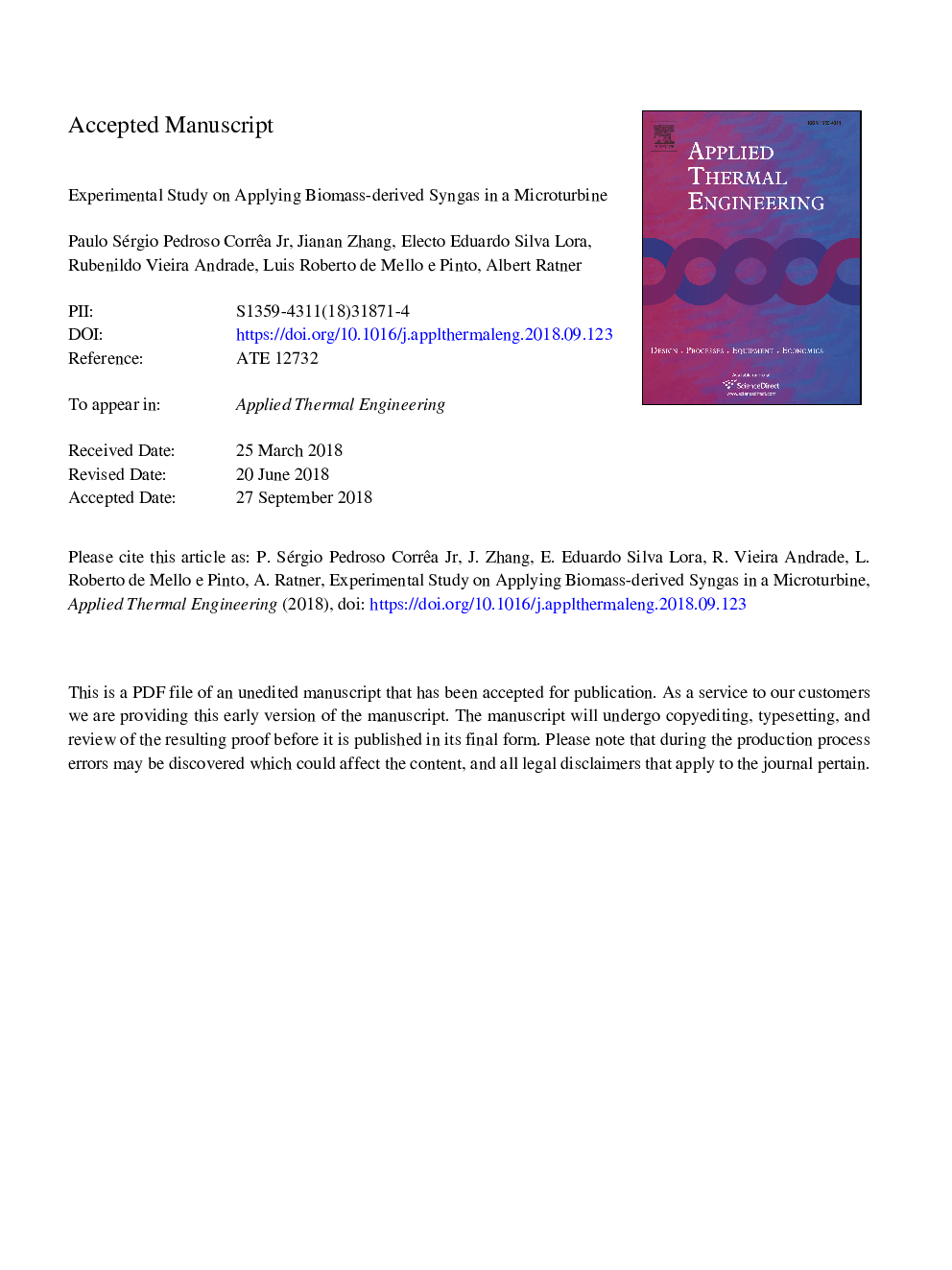| Article ID | Journal | Published Year | Pages | File Type |
|---|---|---|---|---|
| 11020831 | Applied Thermal Engineering | 2019 | 23 Pages |
Abstract
The current research aims at studying the effect of using biomass-derived syngas as a supplement of the natural gas in a microturbine. The study includes microturbine performance and burner tests. Microturbine performance test used the blends of natural gas (NG) and the syngas (syngas A) from the air gasification of rice hulls. The microturbine test focuses on turbine performance features that include turbine efficiency, outlet temperature, air/fuel flow rate, and NOx and CO emissions. In contrast, the burner tests were performed to interpret the microturbine test results and provide guide information on using high hydrogen content syngas (syngas B) in the microturbine. Microturbine tests show that the efficiency drops (about 13%) when the fuel changed from pure natural gas to 50% NG/50% syngas A blends. Furthermore, the temperature analysis shows that the temperature at the turbine outlet experiences negligible variations despite the change in fuel composition. The emission results indicate that when the output power is sufficiently high, the NOx emission keeps unchanged, whereas the CO emission increases with the syngas addition. Burner tests examined the flame by utilizing OHâ chemiluminescence and planar laser induced fluorescence of OH radicals. Results demonstrate that the increase in CO emission is related to the incomplete combustion, whereas the unchanged NOx emission is associated with the local hot zone in flames. Moreover, at a forcing frequency of 125.6â¯Hz, phase-averaged OHâ images, global heat release oscillation, and the Rayleigh index analysis indicate that the variation of fuel composition can change the response of the flame to acoustic perturbation.
Related Topics
Physical Sciences and Engineering
Chemical Engineering
Fluid Flow and Transfer Processes
Authors
Paulo Sérgio Pedroso Jr, Jianan Zhang, Electo Eduardo Silva Lora, Rubenildo Vieira Andrade, Luis Roberto de Mello e Pinto, Albert Ratner,
